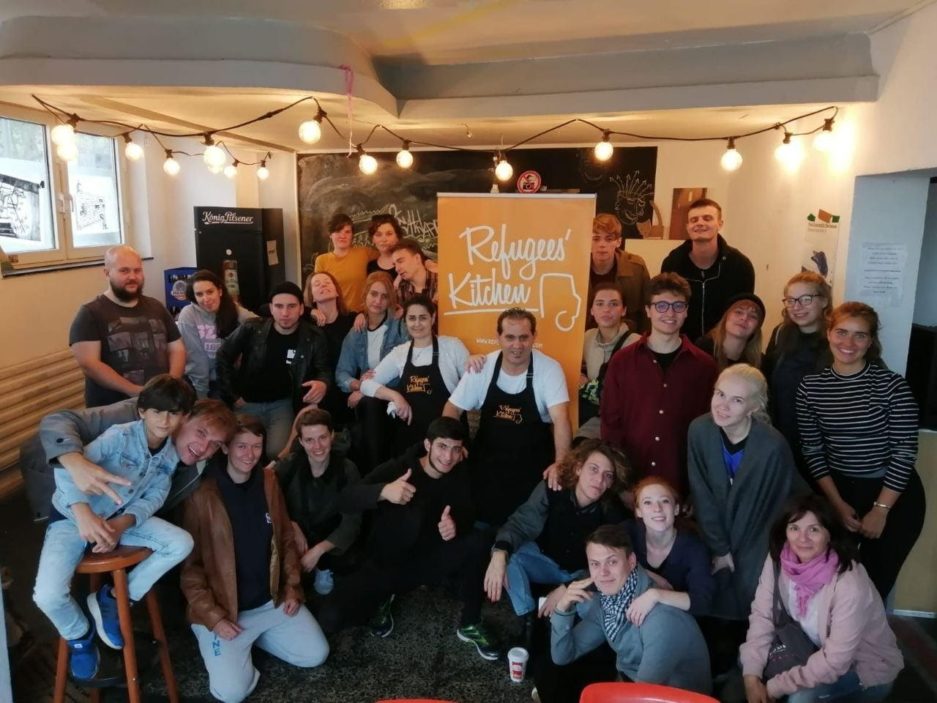
Refugees’ Kitchen in Oberhausen
The Refugees´ Kitchen is a mobile kitchen, developed through a collaboration between artists and refugees led by the team of the EPIC partner KITEV. A mobile kitchen that was co-planned, co-built and is operated through collective work. Subsequently, it rolls from city to city and sheds light on the respective regions that the asylum seekers have left,through culinary as well as additional activities such as concerts, lectures or joint discussions.
At different inner-city sites, the Refugees´ Kitchen members cook traditional dishes from each of their regions. Over food, small appetisers of political information will also be offered: the background of war and crisis, authoritarian regimes, military interventions, the history of the respective countries. Fast food with fast facts about conflict areas. Refugees´ Kitchen underlies the theme of flight from conflict with subjective histories, as well as with political backgrounds. It confronts those uninterested in (global) politics, with the theme of flight.
Refugees’ Kitchen sees itself in the context of already existing models that combine work for, with and by refugees. The approach of empowering refugees in their abilities and emancipation is progressive. The project does not degrade the newcomers to passive recipients of aid, but enables them to act as responsible hosts themselves.
In concrete terms, it develops and tests a model that can and should be copied in many places in Germany and all over Europe. The special technical and aesthetic quality of the jointly built mobile kitchen and the culinary level of the dishes tell of the individual qualities of the refugees and aspects of their culture. Thanks to good local networking, the job centre, AWO, local companies and educational institutions were able to lend a helping hand.
Over the years, the Refugees Kitchen team has grown, but there have also been persons leaving. We are particularly proud of this, since the people who have left the joint project have taken this step because they have found apprenticeships and permanent jobs in the meantime, sometimes also through working at the Refugees Kitchen.One of those examples is Abdullhakim, who came to Germany from Afghanistan and, as a trained tailor, discovered his talent for carpentry during the construction of the kitchen. The KITEV team as the head of the project was able to arrange a two-week internship for him in a carpentry business in Moers, after which he received an offer of training from the master and owner that he accepted.
In addition, it is important for us to emphasise that the employees of the Refugees Kitchen are regularly paid for their work as part of a marginal employment contract and that the project is in constant evolution.
To get to know more about the Refugees´ Kitchen, watch our video here: https://vimeo.com/183195842